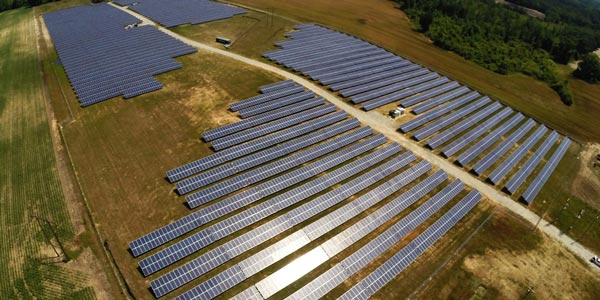By Amanda Durish Cook
FERC last week rejected Vote Solar’s request that the commission reconsider its decision not to enforce the Public Utility Regulatory Policies Act against Montana regulators (EL16-117-001).
Vote Solar petitioned FERC in early December after the dismissal of its first complaint, which alleged that the Montana Public Service Commission violated the federal law when it allowed NorthWestern Energy to suspend its tariff for solar qualifying facilities pending an updated rate review. (See FERC Rejects Complaint on Montana Solar; 2nd Case Pending.)
The Montana PSC issued the suspension last June after the utility argued that QF rates for solar producers were 35% above avoided costs and that the 130 MW of planned solar projects in the utility’s service area would place an undue burden on ratepayers.
The solar advocacy nonprofit said that NorthWestern was seeking to “undermine” PURPA and renewable generation.
The commission reiterated that it cannot direct the Montana PSC to take any action because state regulators are not FERC-jurisdictional public utilities subject to the Federal Power Act. The commission also said Vote Solar did not have standing to petition for enforcement because it was neither an electric utility nor a QF.
The commission rejected Vote Solar’s contentions that FERC has the authority to issue a declaratory order against the Montana PSC through the Administrative Procedure Act and that the commission can bring an enforcement action pursuant to Section 210 of PURPA based on the nonprofit’s complaint.
By granting Vote Solar’s request, the commission said it would be acting ultra vires — beyond its authority.
Furthermore, the commission maintained that its choice not to act against the PSC is backed by the Supreme Court, which “has established the general rule that an agency’s decision not to exercise its enforcement authority, or to exercise it in a particular way, is committed to its absolute discretion” under circumstances when their enforcement is not legally mandated.
“Because there is no legal requirement here to commence an enforcement action, there is thus no decision subject to legal error,” the commission said. “Although Rule 206 of our Rules of Practice and Procedure permits ‘any person’ to file a complaint with the commission, our regulations cannot grant us more authority than the statute grants us.”
Vote Solar said that FERC’s original dismissal created a “framework wherein the commission can only take action against a state regulatory authority when asked to do so by a regulated party … [and] leaves the public without a path to seek relief from the commission when state regulatory authorities fail to implement PURPA properly and places the burden on electric utilities, qualifying cogenerators and qualifying small power producers as the only entities that can seek enforcement action.”
The commission countered that Vote Solar is already an intervenor in a similar, separate complaint against the Montana PSC by North Carolina-based solar developer FLS Energy (EL17-5).
“Our dismissal of Vote Solar’s complaint here did not foreclose Vote Solar’s public participation in our proceedings,” FERC said.





